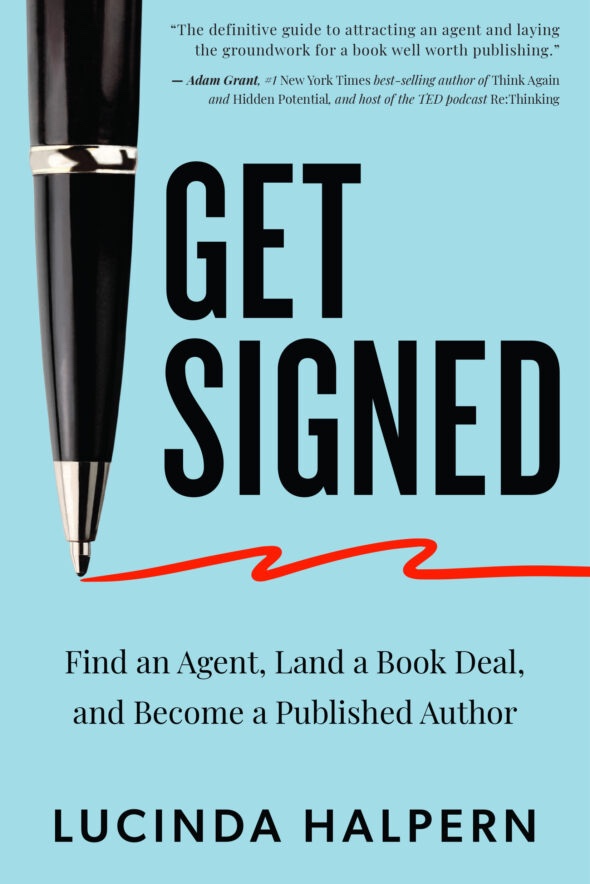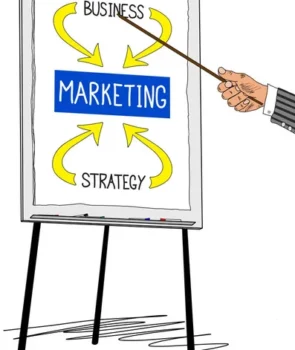From early revisions to navigating your launch, here’s how your agent can be a key partner before, during, and after your book is sold.
Search
How a Literary Agent is Useful After You Get Signed
May 20, 2025
Having a literary agent certainly opens a lot of doors for writers. If you have spent time reading blogs or listening to podcasts about publishing, this is abundantly clear. There’s a lot of focus on landing an agent—and for good reason. Getting signed is a major milestone! But the relationship continues long after you sign the contract—and, mostly important, it’s mutual. I want to spend some time on the myriad ways agents think about and oversee author care.
Agents, at their best, do more than broker deals. At Lucinda Literary and other agencies, it’s not uncommon for an agent to collaborate with an author for months to crystallize a book idea into one that is market-ready. And there are a number of ways in which an agent’s consultation continues to be useful once a publishing contract is negotiated, the ink is signed, and your book is underway.
Consult Your Agent on Any Big, Sweeping Editorial Revisions
Even when you’re interviewing agents, I advise authors to probe for what kind of work they think your manuscript needs before submission. Try asking: What will make this book more salable? Typically, the answer is more than you think and you want to avoid surprises down the road, on top of ensuring a shared vision. You might also ask: what comparative titles do you see for my book? What kind of publisher is a fit for this project? Who is the primary reader?
Once you’ve agreed on the concept and arc of the book, there should be a fair amount of trust, room to experiment and finesse as part of the creative process. But if you’ve decided to kill off a major character, change POV, or begin or end your novel differently, check with your agent to make sure you’re on track. For nonfiction, it’s common for writers to find repetition within chapters and then condense them. But if the “big idea” of the book is evolving as you write and edit, you may wish to get a pulse check from your agent.
Get Your Agent’s Opinion on Your Website/Social Profile
If you’re launching or rebranding your website or social media, solicit your agent’s feedback to see that your online presence is aligned with both the book and the audience your book is targeting. Remember that publishers will extensively research prospective authors online before choosing to invest in them. So before you relaunch anything about what you’ve already done, a savvy and attentive agent can lend guidance on the dos and don’ts of marketing yourself online.
Once Your Book is Sold…
Involve Your Agent in Key Book Milestones
At my agency, Lucinda Literary, we believe that authors and editors should work directly on creative matters—an agent steps in mainly as your “business affairs” person. Thinking about enlisting a coauthor, ghostwriter, or illustrator? Considering a new title, length, or format? Your agent should weigh in.
Book covers and titles are personal and subjective. Many agents bring a helpful eye and gut check on what is or isn’t working. And when author and agent present a united front, feedback to the publisher tends to carry more weight.
Let Your Agent Troubleshoot
The road from book deal to publication is long and winding. If something goes awry in the relationship with your publisher, enlist your agent to follow up and get answers. It’s important to remember that an agent is your advocate first and foremost; we work for you, not your publisher. If you’ve sent a partial manuscript and haven’t heard back from your editor in weeks? Or if you’re late receiving an advance or royalty payment? Your agent should be the one to inquire.
Get Big Picture Ideas and Direction on Your Publicity Campaign
Authors should have a direct and frank relationship with their publicists—the more often authors are directly, but respectfully, in touch with their publicity team, the better the results. However, it’s beneficial for your agent to join the first publicity kick-off call and look at a marketing and media plan to ensure that every avenue is covered. They can also brainstorm any big-picture ideas (as agents are wont to do). Your agent may have freelance publicist recommendations, so don’t hesitate to ask.
You don’t need to copy your agent on every publicity email, especially in the early stages. But if things go quiet or feel off-track, let your agent step in on your behalf. Keep in mind: a larger advance and print run signals the level of a publisher’s (and agent’s) investment in results. If you’re published with a smaller house or received a more modest advance but have huge publicity ambitions, you may be better served by an outside publicist. In that case, keep your publisher and agent in the loop, but streamline communication where possible.
And Remember: Publishing is a Long Journey
As impatient as we are to get your book to market (as I’m sure you are too!), publishing moves slowly. From signing with an agent to seeing your book on shelves, the process can take years, and once a manuscript is with the publisher, timelines are largely out of the agent’s hands. There will be sticky situations, but: be patient, take breaths, and remember that your agent and publisher are just as eager for your book to be a success as you are! It’s a long relationship ahead, where thoughtful communication and understanding will always win you the best results.
Looking to stay inspired while your book is in progress? Join me in Italy next spring for a week of writing, connection, and expert guidance in a stunning Florentine setting.








